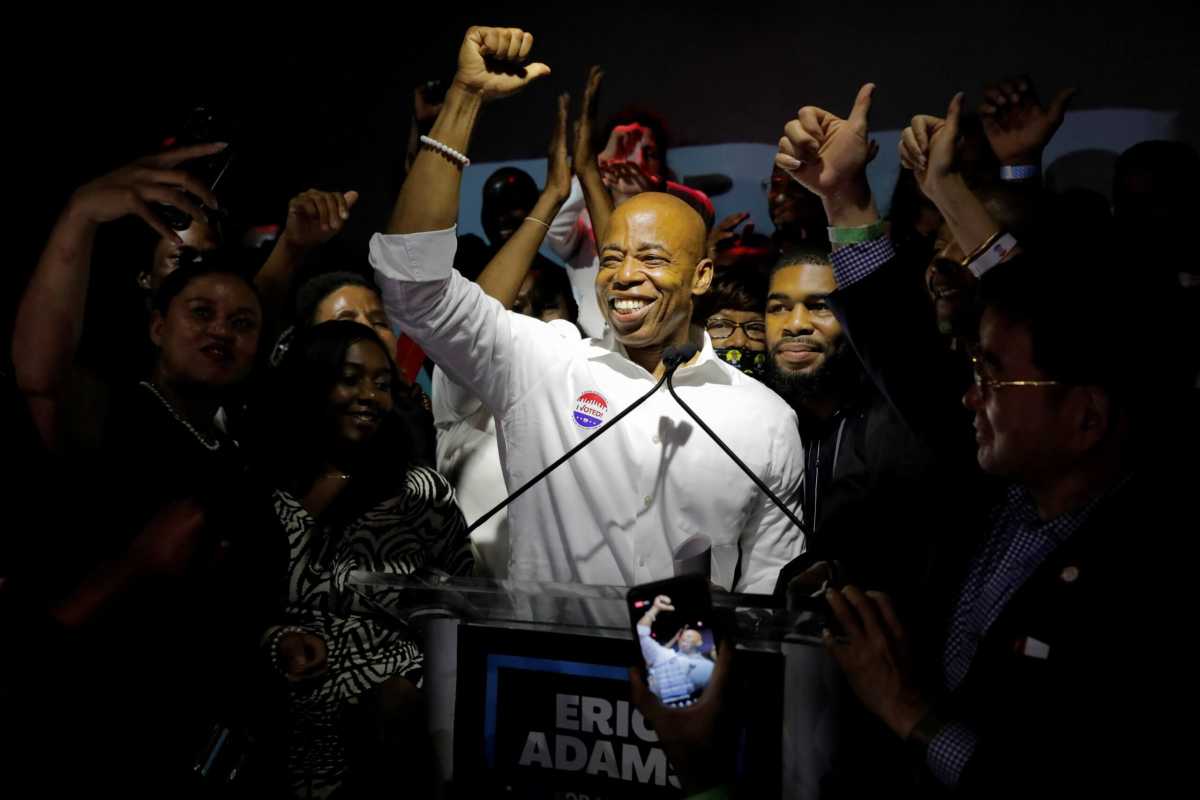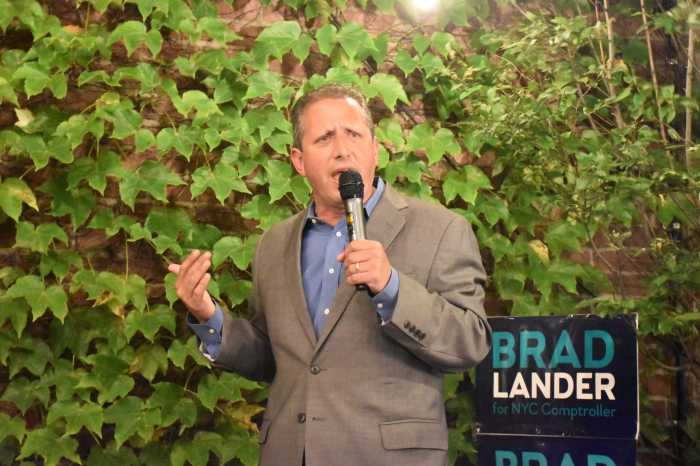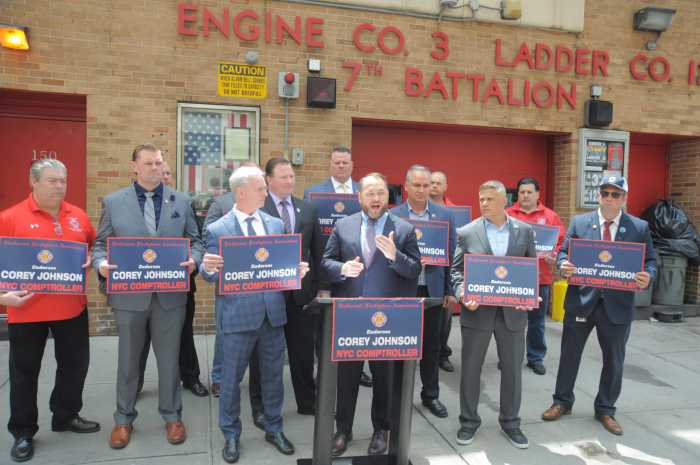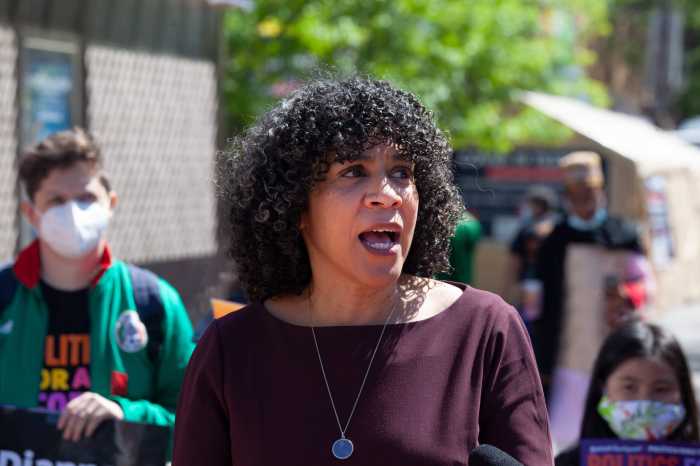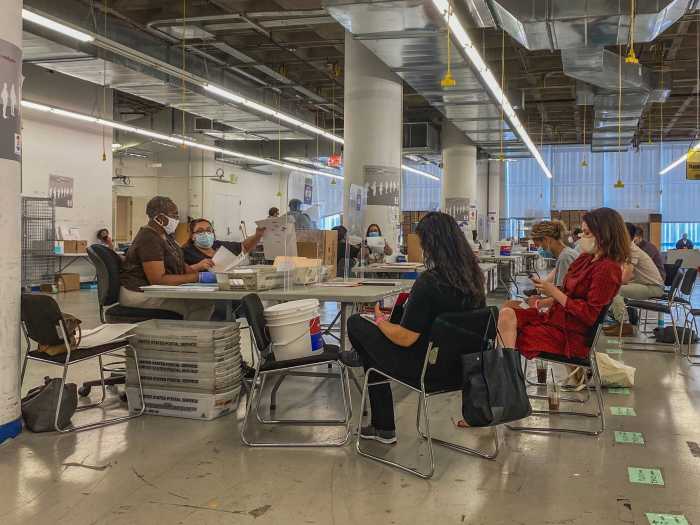It’s all over but the counting.
A roughly 75,000-vote lead should give Brooklyn Borough President Eric Adams some comfort that he’s on track toward winning the Democratic nomination for New York City mayor — but that isn’t a certainty just yet.
In the old days, Adams would have advanced to a two-person runoff for the nomination with the second-place finisher, civil rights attorney Maya Wiley. But this is a new era in New York, as voters in the June 22 primary utilized ranked-choice voting (RCV) in the mayor’s race and other citywide contests for the first time — selecting more than one candidate for office, in order of their preference.
The preliminary vote count from the New York City Board of Elections of all ballots cast in the early voting period and on Primary Day gave Adams a sizable advantage — securing just under a third of all votes cast (31.6%) with 253,234 first-choice votes.
Wiley is a distant second with 177,722 (22.2%) first-choice votes, followed closely in third by former Sanitation Commissioner Kathryn Garcia with 155,812 (19.5%).
Adams, however, came away sounding confident that he won the race, though he acknowledged all the counting that remains in the race.
“We know there’s going to be 2s and 3s and 4s, we know that. But there’s something else we know: That New York City said our first choice is Eric Adams,” Adams said during his campaign party Tuesday night.
Wiley said with confidence that the people have not yet spoken in full.
“I don’t know what New Yorkers have chosen tonight. Not any one of us can because the votes are still being counted,” she told supporters at her campaign party. “I will tell you what is true: Every single vote will count. Every single New Yorker who voted will count.”
The three top vote-getters (Adams, Wiley, Garcia) comprise 73.3% of the 799,827 early and Primary Day first-place votes cast. With no one candidate having received a clear majority, the race now goes to ranked-choice assessment of the remaining 26.7% of votes cast.
Under the RCV system, each voter gets to select up to five candidates in order of preference. If no candidate secures a majority of votes on the first ballot, the ballots are recounted in individual rounds — with the candidate with the least support in each round eliminated. Voters who had their first candidate eliminated would then have their lesser-choice votes counted toward the candidate of their choice. This system of counting and eliminations goes on until one candidate has achieved a majority of votes.
The city’s Board of Elections will now have to wade through 213,059 ballots to see the other choices voters made in the mayor’s race. Then there’s the more than 80,000 absentee/mailed ballots that New Yorkers sent which have yet to be counted at all.
In short, the city’s Board of Elections has its work cut out for them. With more than 300,000 votes to be counted or recounted, it may take several weeks before a definitive winner of the mayor’s race is determined.
Garcia and Wiley now hope to pick up tens of thousands of lesser-choice votes from voters of eliminated candidates such as entrepreneur Andrew Yang (93,291 votes), City Comptroller Scott Stringer (40,244 votes), nonprofit founder Dianne Morales (22,221), former Citicorp executive Ray McGuire (18,503) and former Housing and Urban Development Secretary Shaun Donovan (17,903).
The questions are how many of these voters bothered to rank additional candidates, how many ranked Adams on their ballots — and whether Garcia or Wiley gain enough lesser votes to overcome the gap.
One thing is certain: whoever wins the Democratic primary for mayor will face Curtis Sliwa in the November general election. The Guardian Angels founder and radio talk show host won the Republican nomination for mayor outright on Tuesday.
Note: Figures reflect preliminary numbers from the New York City Board of Elections, posted at 1:48 a.m. on June 23, with 96.62% of scanners reported.



